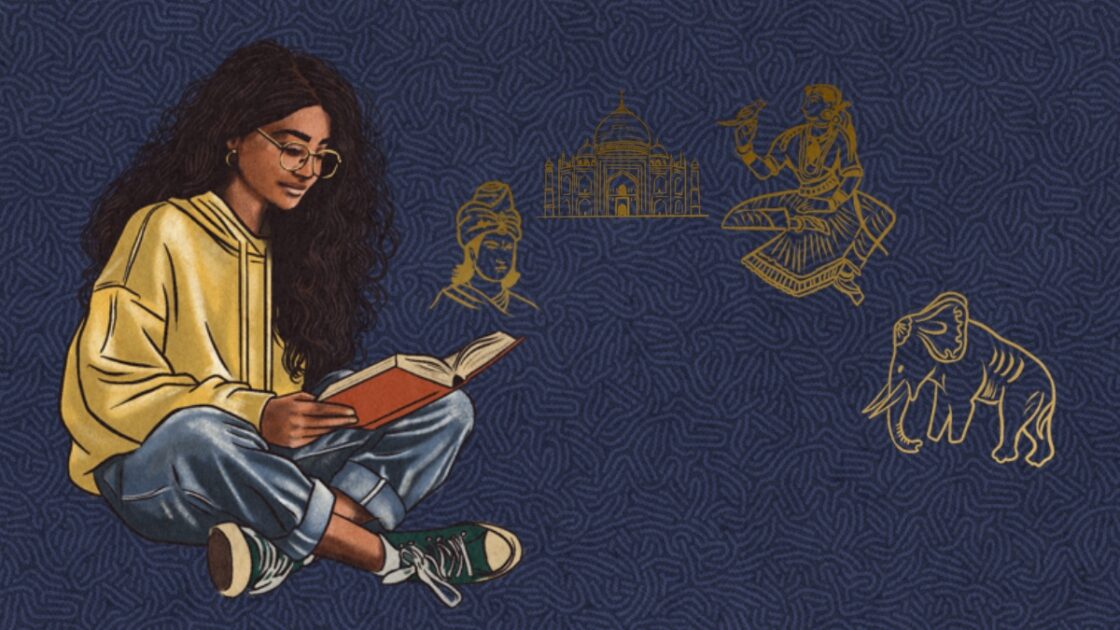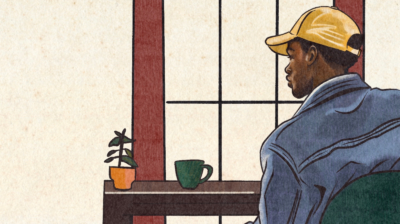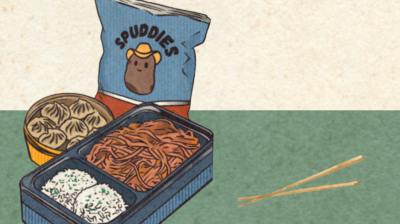My experience as a second-generation immigrant
Anushka shares how she learned to embrace her Indian and Irish heritage.

Picture this; 19 years ago, a tiny baby with a mop of black curls and warm brown skin was born in Ireland. Irish-born with Indian parents. I’m a second-generation immigrant, meaning that I was born and raised in the country that my parents immigrated to, Ireland.
My identity as an Irish person is invaluable to me. Ireland is everywhere in me – in my heart, in my bones, in my mannerisms, in the way that I speak. Ireland will forever be somewhere I consider home. I’m really happy to be of this country, of its kindness, natural beauty and friendliness.
My lived experiences as a second-generation immigrant have shaped who I am in countless ways, both good and bad, for my entire life. It’s good to remember that just as everybody’s life is different, everyone’s experiences with being a second-generation immigrant are different. I wouldn’t change who I am for all the money in the world, and I’m proud to call myself Indian-Irish. As Irish, as I am Indian.
The joy I find in the immigrant experience is so special to me. Every time I celebrate a festival with my family and our friends, I’m filled with such happiness. It delights me that I’m able to keep celebrating important events and festivals, so far away from the country in which they originated. The strong sense of community amongst immigrants is something to be noted – the collective celebration has been a key part of my own second-generation immigrant experience. It brings me closer to my culture and my roots, allowing me to maintain the connection I have to my ancestral home.
My childhood and the pressure to reject parts of my identity
While I feel close to my Indian heritage now, this wasn’t always the case. Growing up, I was fascinated with Indian culture and mythology. I devoured stories like there was no tomorrow, disappearing into the different worlds the stories introduced to me. However, as I grew older, things began to change. According to some of my peers, my culture wasn’t cool at all. They thought it was strange, weird and odd. My thick eyebrows, traditional food, music and culture were the targets overall. It made me feel so small, so different.
I felt hot embarrassment whenever I was teased over these things. Menial as they seem now, at the time, it was everything to me. To have your differences pointed out to you at a time when you so deeply want to be like everyone else is incredibly difficult, especially for a young girl. This schoolyard peer pressure to ignore a part of me taught me one thing; that it’s embarrassing to be of Indian heritage. And so, I shrunk smaller and smaller in my self-esteem and became ashamed of these key parts of me. I was, and am, very sensitive, which didn’t help matters in the slightest. Because, here’s the thing; while I feel a strong connection to my Indian heritage, I also feel a strong sense of being Irish. Both of these things are true at the same time.
“The Othering”
It’s a very out-of-body, odd sensation, to feel as though you are the same as everybody else in a room, only to find out that everyone else thinks that this is impossibly far from the truth. I call it “The Othering”. I’m Indian-Irish. As Irish, as I am Indian. Only, it didn’t feel like that any more. Many years on, I have to say that “The Othering” still upsets me greatly. Discrimination can be both a loud and silent killer.
When people think about racism, they often think about physical violence. But the form of racism I’ve experienced the most is microaggressions. These are subtle, quiet, and sometimes unintentional, statements or actions that discriminate against minorities. “The Othering” is an example of how microaggressions are used.
Why can’t I be considered Irish?
This is a question I have mulled over many times. I have a thick Irish accent. Tá cúpla focail agam. I was born and raised here. Yet, why am I still not considered Irish? Why do people continue to ask me: Where are you really from? As if my being from Ireland is an impossibility? Why do people refuse to pronounce my name properly, shrugging and explaining that “It’s just too hard. How about I call you Ash instead?”
Studies show that 1 in 10 children in Irish classrooms are from non-white Irish backgrounds. Ireland is becoming more ethnically diverse by the minute. Yet why is it still being implied that we don’t belong? I became resentful of being different, of explaining myself. And this didn’t change for a while, until after I began secondary school.
Learning to appreciate my Indian-Irish identity
Towards the end of first year, my secondary school organised a cultural diversity day. We decorated the school hall with different countries’ flags and came dressed up in our traditional clothes. We shared our traditional foods and gathered together in celebration and appreciation of our respective backgrounds. I remember participating in it and feeling a sense of warmth within me. Seeing everybody around me so comfortable and confident in proudly celebrating their background, made me much more comfortable with the idea of celebrating mine. In retrospect, this was a pivotal moment for me.
As I grew older, I became much more confident. I stopped caring about what others thought so much. Everything comes with time, you know? I began to feel brave enough to stand on my own two feet and be different proudly. I even organised my school’s cultural diversity day. I’m no longer too scared to stand up for myself.
I realised that my Indian-Irish identity was something to be cherished and honoured, instead of something to hide. I love to talk about and learn more about my heritage. My Indian heritage is wonderful and beautiful, through and through. I love my home in the west of Ireland; its natural beauty, the old Irish myths associated with it, and its small-town charm never fail to amaze me. I’m proud to be Indian-Irish, and celebrate my differences with joy!
Feeling overwhelmed and want to talk to someone?
- Get anonymous support 24/7 with our text message support service
- Connect with a trained volunteer who will listen to you, and help you to move forward feeling better
- Whatsapp us now or free-text SPUNOUT to 50808 to begin.
- Find out more about our text message support service
If you are a customer of the 48 or An Post network or cannot get through using the ‘50808’ short code please text HELLO to 086 1800 280 (standard message rates may apply). Some smaller networks do not support short codes like ‘50808’.






